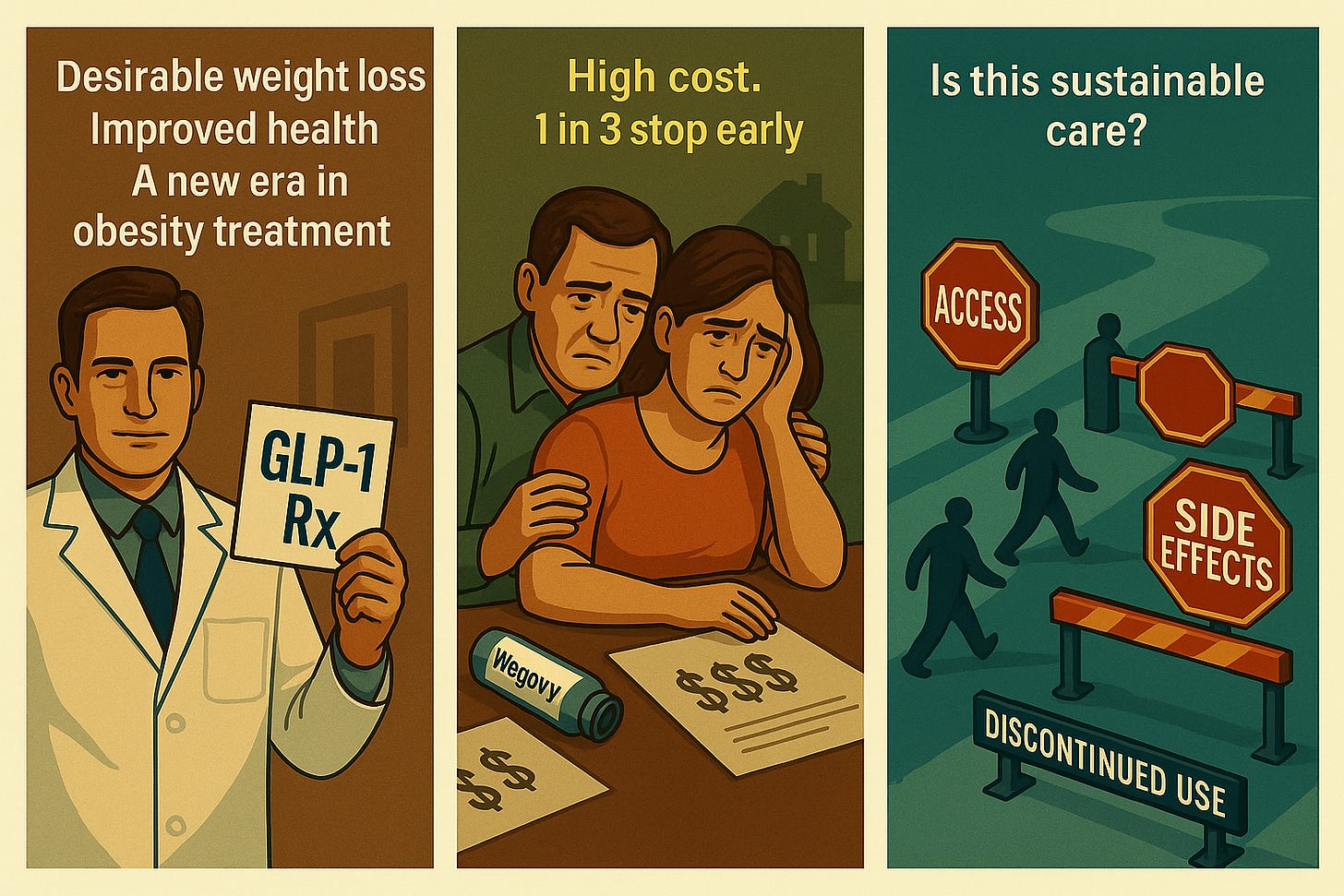Last week I wrote about who stops taking GLP-1 drugs and why. Today I’ll offer more on this and related themes.
Medscape reports on real-world usage data (not in a clinical trial) from about 8,000 Cleveland Clinic patients with overweight or obesity but not diabetes who used GLP-1 drugs.
In the real world, the use of semaglutide (Wegovy) and tirzepatide (Zepbound) produce far less weight loss than in the randomized clinical trials, largely because people discontinue using them early or use lower maintenance doses, new research found.
One diabetes research center physician interviewed said:
It shows that we’re not in a position to have (drug therapy) to treat this disease on a chronic basis. …The unmet clinical need is a medicine that’s well tolerated, that gives us 15 or 20% weight loss, is affordable and is accessible...We don’t have that, and this is the consequence…Everyone’s fixated on [GLP-1 drugs], but I don’t think we’re going to get past these [gastrointestinal] side effects…There are a lot of other drugs in early phases.
A research letter recently published in JAMA Network Open stated that total spending on GLP-1 drugs in the US increased by more than 500% from 2018 to 2023 (from $13.7 billion to $71.7 billion).
Back in February, the Undark digital magazine reported, “For Many, Weight-Loss Drugs are Pricey. Expanding Access is Hard.” It quoted a health policy researcher:
At current prices, it would be incredibly difficult to pay for these drugs and get them to all of the people that would likely want to use them.
The story ended this way:
Restrictions on access to expensive drugs are like applying a Band-Aid to a deeply dysfunctional system, said (one health economist) — one that staunches financial bleeding by denying vital treatments. “But because this drug is so astronomically expensive and potentially so many people are eligible for it,” she said, “it really forces us to deal with the kind of systemic flaws that we tried to paper over.”
In April, The New York Times reported:
How Health & Human Services director RFK, Jr., and Mehmet Oz, Administrator for the Centers for Medicare & Medicaid Services, handle the GLP-1 issues over the next few years is an important health policy concern for this country. Kennedy has criticized the drugs while Dr. Oz appears to be a huge fan, describing the benefits of GLP-1 drugs as "massive."
Some news organizations have done a very good job keeping Americans informed on the GLP-1 drug phenomenon. The ones who have done it best report on not only the patient care potential but the problematic issues of cost, access, side effects, high numbers of people discontinuing the drugs, and more.







One reason for intolerable side effects is the lack of medical oversight and supervision with these drugs. Medispas, compounds, and many commercial telemed providers simply charge a fee, write prescriptions without nutrition counseling and dosing personalization. I realize it is anecdotal but I’ve had zero patients stop because of side effects. Used properly, these drugs are a lifesaver (yes…saves lives) for patients. It demands personalized oversight and affordable cost. The affordability is the major problem currently.